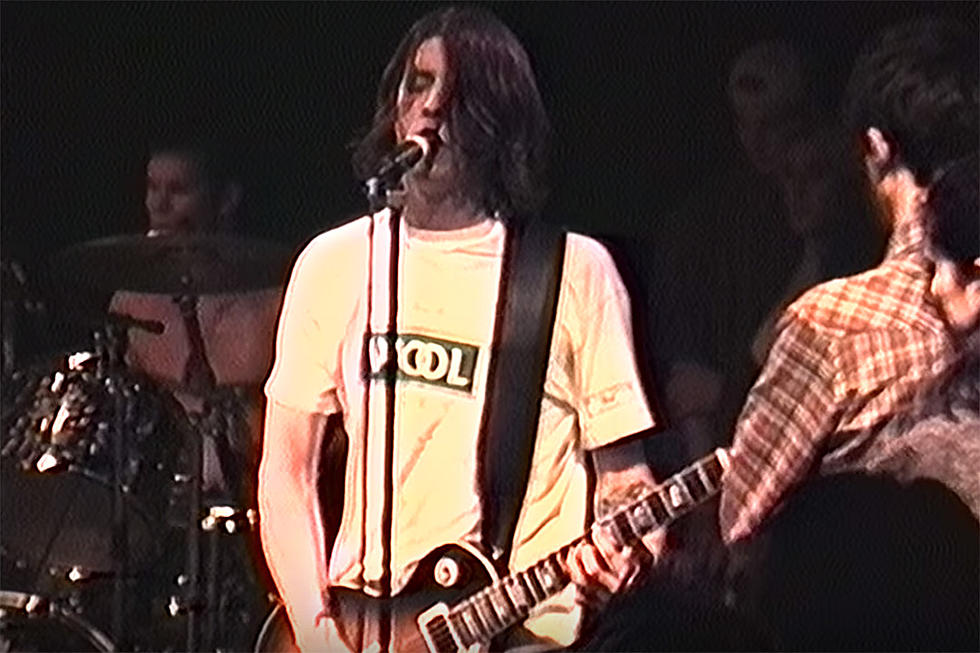
Youth Lagoon, ‘Wondrous Bughouse’ – Album Review
If you've ever faulted a band for sticking with a successful formula, Youth Lagoon’s 'Wondrous Bughouse' is for you. Gone are the fragile openings -- expressions of aching universal loneliness and the corresponding yearning for connection -- heard on debut 'The Year of Hibernation.' Also absent are the dramatic “drops,” those not-quite-Skrillex moments where the volume seems to double, a synthesized drumbeat turns a crawl into a march and spare instrumentation swells to a payoff that evokes scenic forests, sunset-lit beaches, childhood friendships and imagined flights.
'Hibernation' is often called “cinematic,” but really, it's a testament to the listener's imagination and the possibilities an inspiring soundtrack can create. 'Wondrous Bughouse' is no less ambitious than that debut, which found Youth Lagoon mastermind Trevor Powers' bedroom recordings breaking free, as if no small room could hold them. But as Powers has made clear in promoting his follow-up, 'Bughouse' is a different beast entirely.
Here, he makes no effort to replicate the things that worked so well last time out. Instead, Powers relies on a sort of instinctual process that takes whatever existential concerns he might currently be interested and transforms them into complicated and personal compositions. It’s an admirable project, though at times, it lacks the kind of forethought that Powers equates with being contrived.
After the instrumental opener 'Through Mind and Back,' which seems to serve the same function as stretching before exercise, Powers transitions into the standout 'Mute,' the album's first wow moment. He calls for attention and focus without demanding it, and in that sense, 'Mute' previews much of the 'Wondrous Bughouse' aesthetic, with melodic and chaotic touches sharing space, weaving in and out of moments that shift abruptly between harmony and discord.
Powers says the album centers on mortality, and he manages to create songs that reflect equally the beauty and struggle found in life, making for an admirable, though not always pleasurable, listen. He clouds his lyrics with complex arrangements, and when they bob to the surface, as on 'Dropla,' they point to themes of life, death, self-examination and existence. But with tracks like 'Pelican Man' playing like outpourings of near-madness and creativity, it's reasonable -- and perhaps even intentional -- that he lets the lyrics take on a secondary role.
Over the course of his two Youth Lagoon albums, Powers manages to recall both Daniel Johnston and Spencer Krug, artists whose influence seems to come from somewhere beyond, inspiring more than mere regurgitation. Powers pulls back the curtain on 'Wondrous Bughouse,' and through both his successes and missteps, he allows his unique genius to shine.
'Raspberry Cane,' perhaps the most completely satisfying song in the Youth Lagoon catalog, satiates Powers' craving for bigger, fuller, more unpredictable productions without sacrificing harmony and melody. When combined with 'Third Dystopia,' the two cuts provide a masterful 11 minutes that hint at just how far Powers can push his visions without alienating the casual listener. Despite the big-top chaos of 'Attic Doctor' and 'Sleep Paralysis,' Powers is never not in control, and his musical universe remains a spinning ball on his finger tip. As a result, even the more unnerving tracks are impressive, and the album successfully achieves the artist's vision.
Still, it lacks the magic of 'Hibernation' and ultimately fails to reach that album’s heights or sense of importance. The most exciting aspects of 'Wondrous Bughouse' are the doors it opens and Powers' willingness to explore new personal territory. We might not always love what this explorer finds, but it's clear we have the right man for the job.
More From Diffuser.fm









